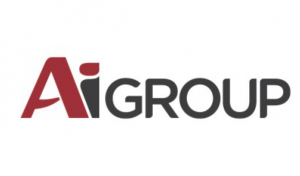Two weeks ago, Australia and China inked a landmark free trade agreement that is set to serve as a platform to further the cooperation between the two countries. Some have welcomed ChAFTA, while others have criticised it greatly, saying that it will hurt manufacturing jobs in the country.

The Australian Industry Group (Ai Group), Australia’s peak industry association which represents the interests of more than 60,000 businesses, has expressed concerns about the country’s FTAs, stating that these agreements might not deliver a competitive advantage to manufacturers.
In its submission to the Inquiry by the Federal Parliament’s Joint Select Committee on Trade and Investment Growth into the Business Experience in Utilising Australia’s Free Trade Agreements, Ai Group identified the most common reasons for not engaging with FTAs: low levels of understanding of how FTAs work; difficulty in accessing information; non-tariff barriers having a greater impact on manufactured exports, and FTA’s not meeting exporters’ needs.
“The overall aim of Free Trade Agreements (FTAs) should always be to provide a net benefit to Australian companies but there is a growing perception that manufacturers should be getting more out of the agreements than they currently are,” Australian Industry Group Chief Executive, Innes Willox said in a media release.
“The first and most significant barrier, particularly for Small to Medium Enterprises (SMEs), is accessing information. While the recent efforts of Austrade and the Federal Government to conduct outreach seminars on the North Asian FTAs are welcome, as is the recent funding announcement in the Budget, they still lack the level of practical information that companies require to adequately utilise an FTA.”
Mr Willox also pointed out that one of the most significant benefits of all FTAs is the reduction of tariffs, but that manufacturers are forced to deal with unnecessary administrative obstacles.
“Information on the rate and scale of tariff reductions and the rules that companies must meet to qualify for Australian origin are often very difficult to obtain. Many manufacturers report that the tariff saving is not worth the administrative burden. And others miss out because they assume the benefits are received automatically,” he said.
“Also, while the recent formal signing of the FTAs with China and Japan are welcome as are the agreements with eight of our top ten trading partners, looking ahead we should be strategically targeting markets with potential, but which aren’t yet strong trading partners. For example, emerging African or Latin American countries could be identified for future FTAs.”
Ai Group’s recommendations to improve the benefit of FTAs for Australian based companies include:
- DFAT’s (Department of Foreign Affairs and Trade) new FTA outreach service should include staff with Customs expertise to assist companies with classification and rules of origin.
- Outreach activities should be delivered in a variety of modes and with enough detail to assist SMES in making informed decisions.
- DFAT’s new FTA outreach service needs to collect information on non-tariff measures that can be addressed under the arrangements of the respective FTAs.
- DFAT resources should be dedicated to educating Austrade and State Government front line trade facilitation staff in the provisions of the ChAFTA NTM (China Australia Free Trade Agreement Non-Tariff Measures) review body and they should actively seek input for issues to address.
The full Ai Group Submission to the enquiry into Business Experience in Utilising Australia’s Free Trade Agreements is available at this link.




















